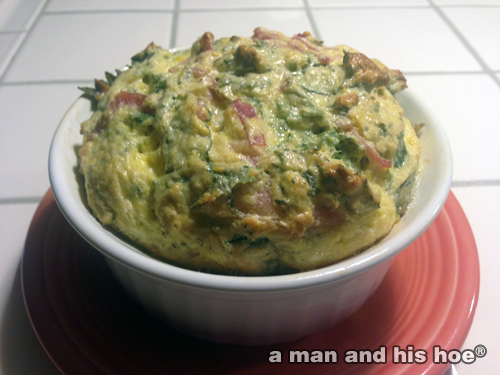
Before you can take a freshly baked soufflé out of the oven you need to pour the soufflé batter into buttered ramekins and put them in the oven.
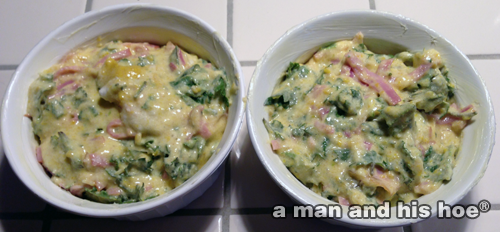
Before you can pour the soufflé batter into buttered ramekins, you need to finish mixing the soufflé batter.
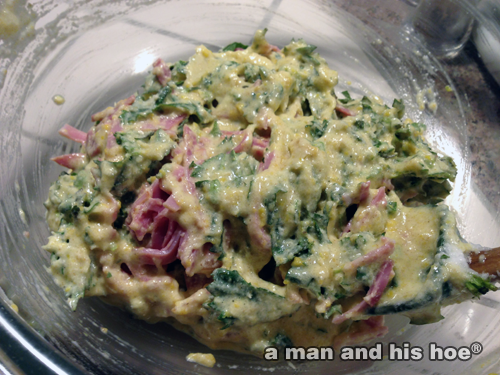
Before you can finish mixing the soufflé batter, you need to add the sliced ham.
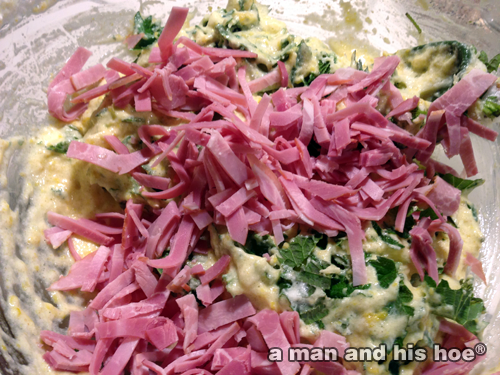
Before you can add the sliced ham to the soufflé batter, you need to finish mixing in the nettle leaves.
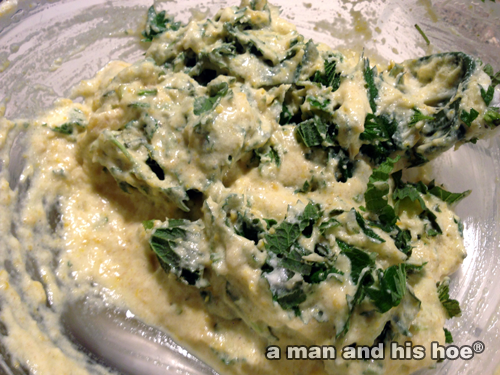
Before you can finish mixing in the nettle leaves, you need to add them to the soufflé batter.
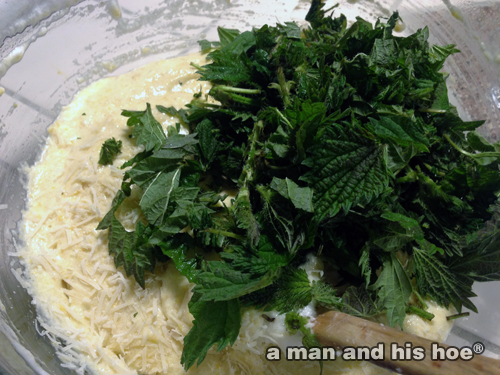
Before you can add the nettle leaves to the soufflé batter, you need to mix in the grated cheese.
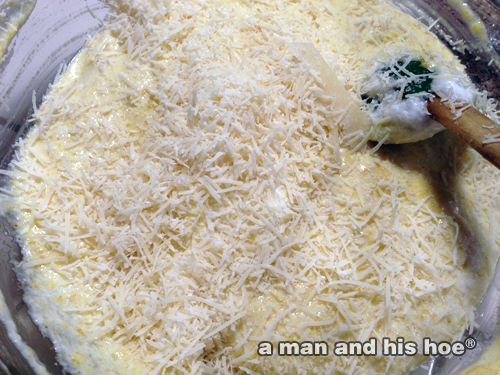
Before you mix in the grated cheese, you need to fold in the roux and egg yolk mix into the beaten egg whites
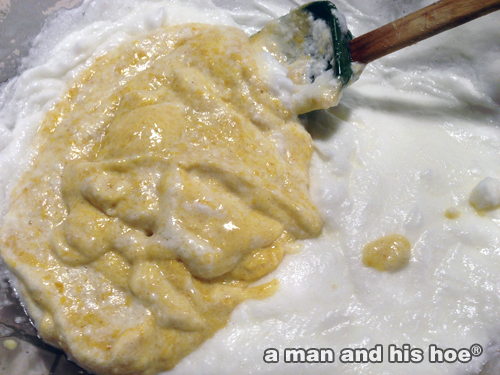
Before you can fold in the roux and egg yolk mix into the beaten egg whites, you need to gently fold in more of the beaten egg whites into the roux.
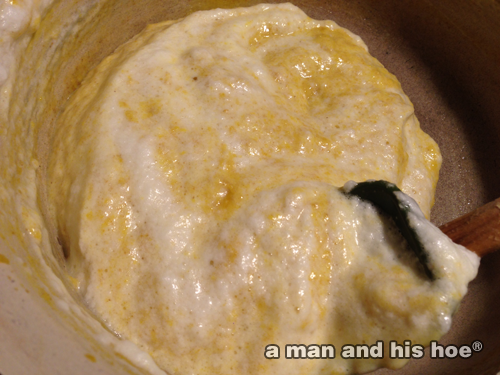
Before you can fold in more of the beaten egg whites into the roux, you need to add a small portion of the egg whites into the roux and egg yolk mix.
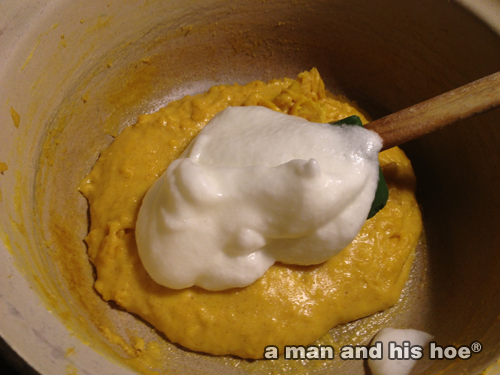
Before you can add a small portion of the egg whites into the roux and egg yolk mix, you need to beat the egg whites into a firm meringue.
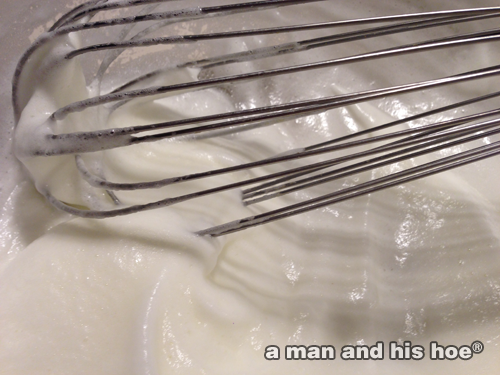
Before you can beat the egg whites into a firm meringue, you need to butter two ramekins.
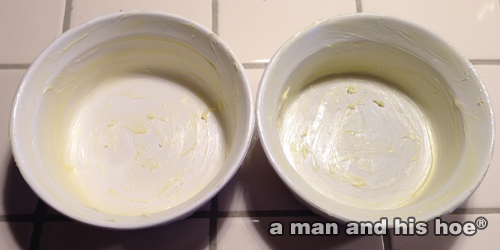
Before you butter two ramekins, it’s a good idea to grate some hard cheese.
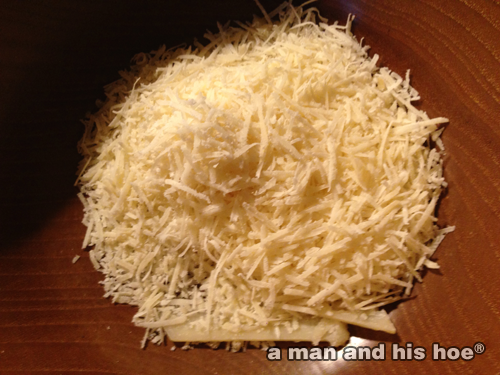
Before you grate some hard cheese, slice some ham.
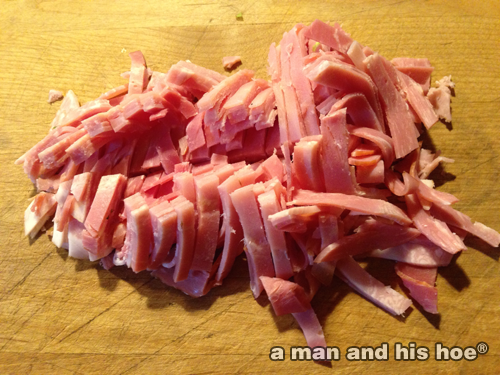
Before you slice some ham, cut the nettle leaves.
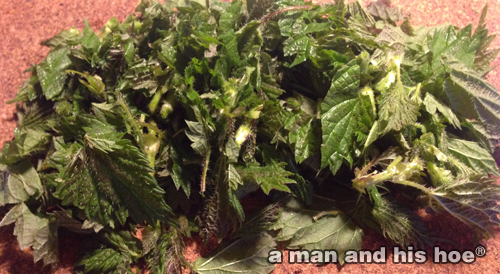
Before you cut the nettle leaves, finish making your rough and egg yolk mix.
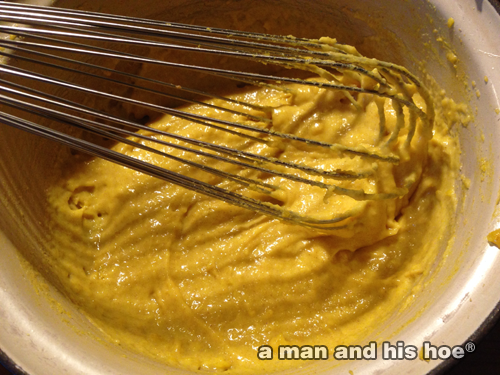
Before you finish making your rough and egg yolk mix, take the rough off the stove and quickly beat in the egg yolks with some milk.
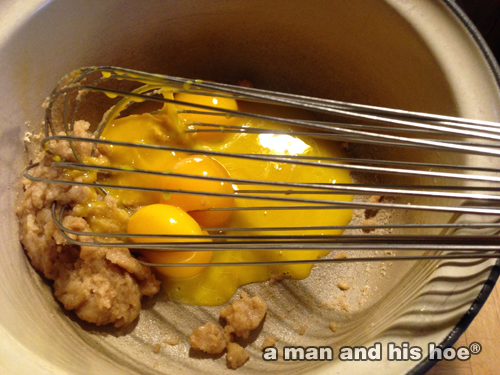
Before you take the rough off the stove and quickly beat in the egg yolks with some milk, cook the rough until it gathers into a soft ball.
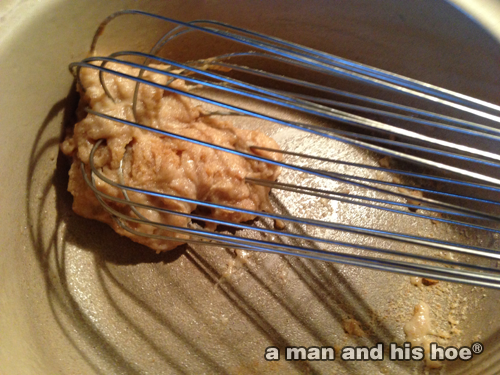
Before you cook the rough until it gathers into a soft ball, brown the flour and butter together.
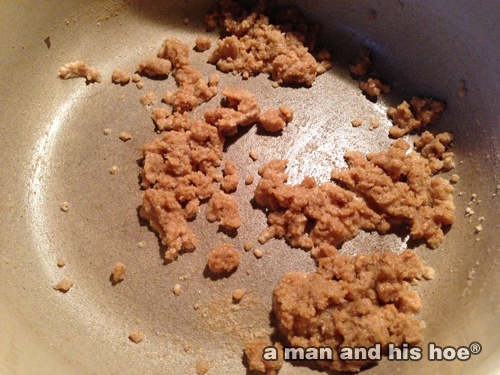
Before you brown the flour and butter together, melt some butter in a pan and add some flour.
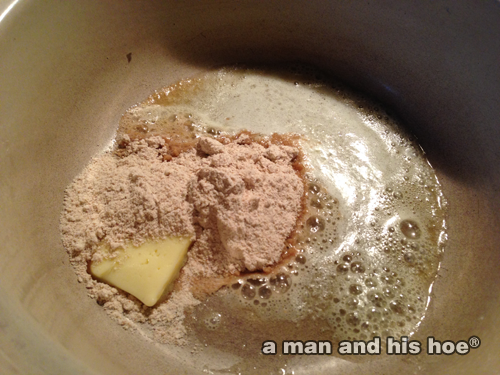
Before you melt some butter in a pan and add some flour, wash the freshly picked nettles.
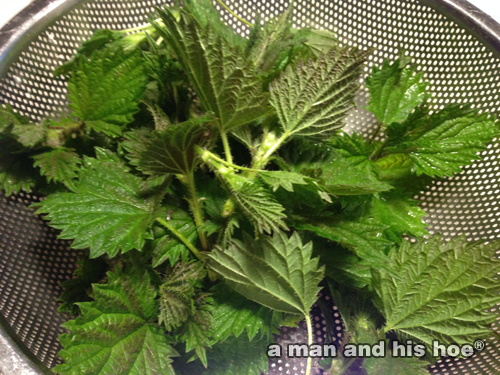
Before you wash the freshly picked nettles, you’ll need to go out into your garden and pick them. You don’t have nettles in your garden? That’s OK, you can use any fresh greens that you find in your garden. Oh, you don’t have a garden? You can’t just go outside and gather something fresh to eat? I guess you could run down to your local green grocer and ask if they have any produce that was picked with the last few hours. What? Your grocer doesn’t even have anything picked today? How is that possible? Surely there is a farm within a 30 to 60 minute drive from your green grocer. There’s no excuse not to have fresh produce picked at least that morning. Well, just do your best, and if your green grocer doesn’t have produce picked that day on their shelves, it’s time to find a new green grocer or find a nearby farmer who will see that you have produce picked that day.

Before you wash you go pick your fresh nettles or greens, break your eggs and separate the egg whites from the yolks.
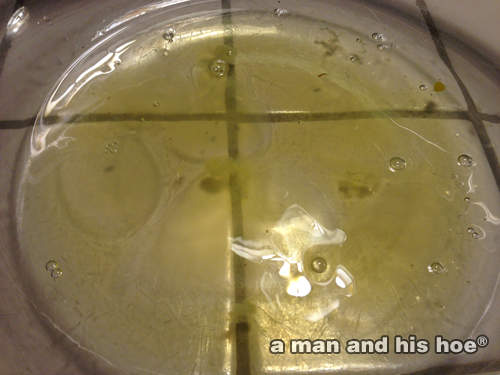
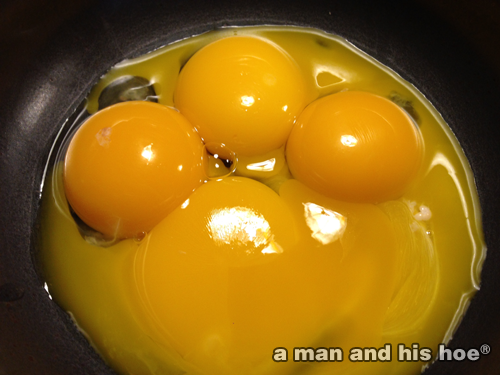
Before you break and separate your eggs, select five eggs laid today. Five eggs will make two individual soufflés. If you have more people, figure between two and three eggs per person. Eggs work best at room temperature, so if your eggs are in the refrigerator, take them out and let them rest until they are at room temperature.
You don’t have eggs laid today? When were the eggs you have laid? What? You don’t know? Don’t tell me you purchased eggs which you didn’t know how old they were? Didn’t the farmer who sold you your eggs tell you when they were laid? Oh, you forgot to ask? Or did you say you bought your eggs from a supermarket? You can’t see a label on the carton saying how old they are? I wonder why that is? What are they trying to hide? Maybe it’s time to raise your egg standards. The next time you purchase eggs, ask the seller you’d like eggs laid that day. If they look at you like you’re nuts, take a deep breath. You’re not the crazy one. The seller who thinks it doesn’t matter how old eggs are to make a good soufflé is the crazy one.
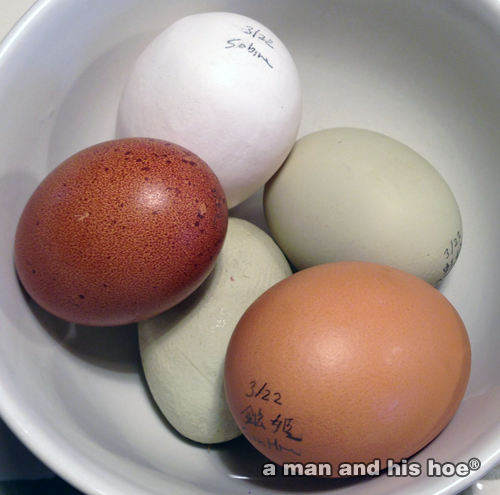
Life is too short for ho-hum eggs. Find someone who will sell you fresh eggs from chickens that spend all day outdoors enjoying the fresh air, sunshine, and exercise.
Tag: Eggs
-
Soufflés Don’t Just Happen
-
Spring Is Here
Spring is here at a man and his hoe®. Vibrant shoots of stinging nettles bursting out of the ground prove it. The best vegetables never make it into the stores. Once in a great while, I’ve seen stinging nettles in a farmer’s stall in a farmer’s market. But here, from now through May, there is an endless supply of succulent stinging nettles to eat. The best way to describe them is spinach on steroids. Delicious steamed, fried, or used in soups, they are especially delightful made into a soup with a touch of cream.
With all the new shoots and bugs emerging, the chickens are having a field day. What a difference two sunny days in a row make.
The three hens below, Ina-Svenda, Cognac, and Kuro-hime, laid three of the eggs in the colander. I’m not sure who laid the fourth egg. Even though I gather eggs throughout the days, sometimes there are too many hens in a row using a single nest to determine which hen laid which egg. Ina-Svenda laid the egg on the far right, Cognac the dark one, and Kuro-hime the white one.
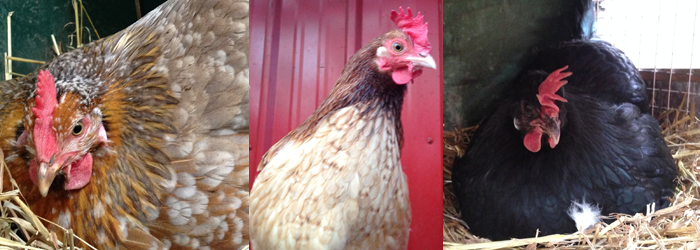
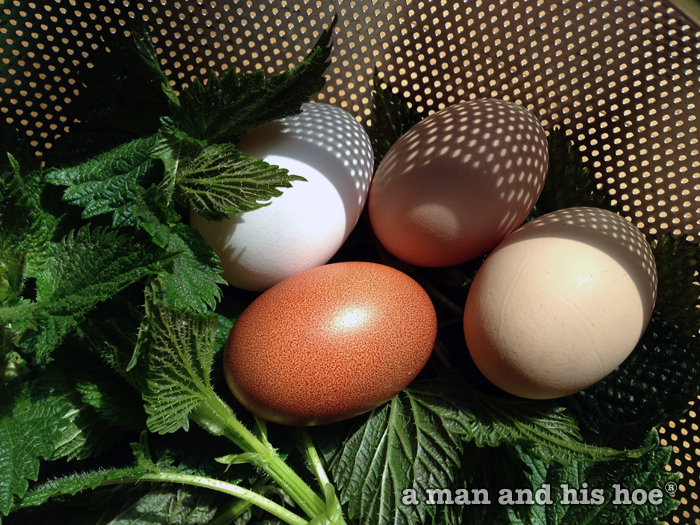
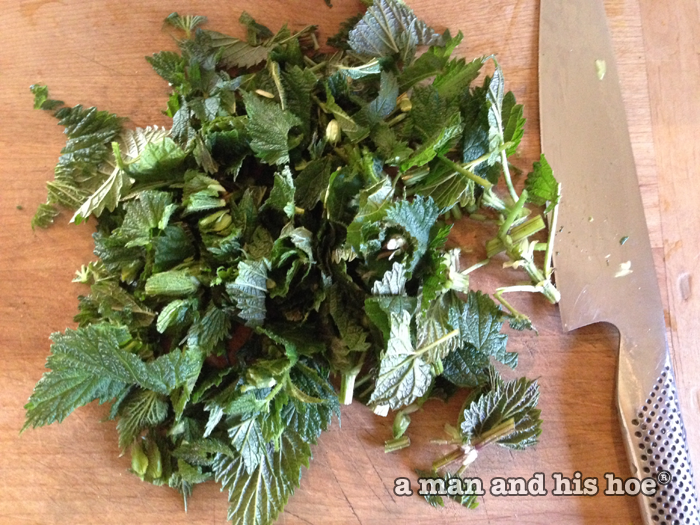
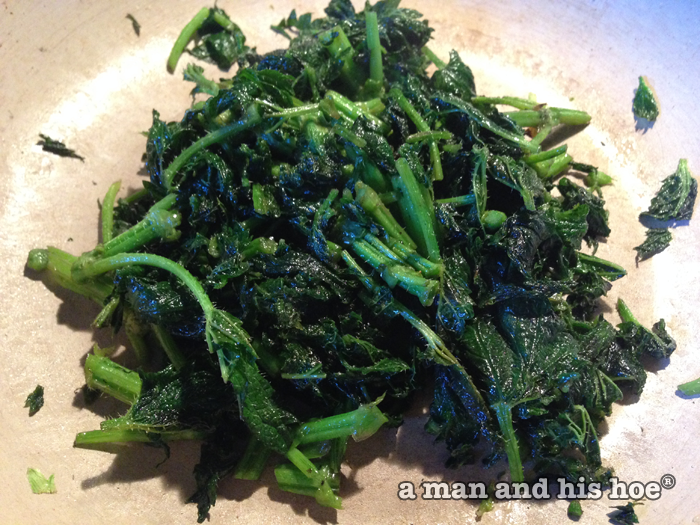
-
Laying an Egg
Chickens lay their eggs standing up. Here’s Hazel laying an egg. First, she sits quietly in the nest for ten, twenty, thirty minutes. Then when the time comes for the egg to pop out, she slowly stands and in a minute or two she drops her egg. Many hens leave the nest soon after laying their egg. Many hens also cackle loudly. I find this odd, as it alerts predators that there is a fresh egg in that spot. But the cackling seems to tell the other hens that the nest is now free, and that there is an egg there.
Hens work together to build a clutch of eggs to hatch. They don’t all want to hatch a clutch, so by working together and laying eggs in the same nest, they can more quickly go to work hatching the next generation of chicks. At least, that seems to be what is going on.
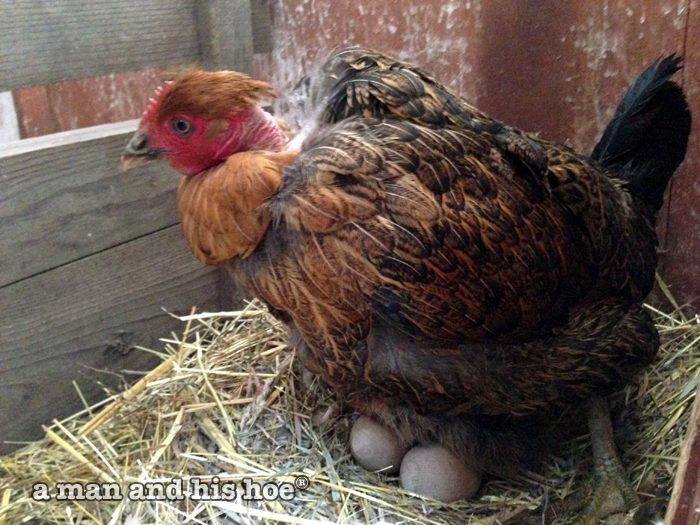
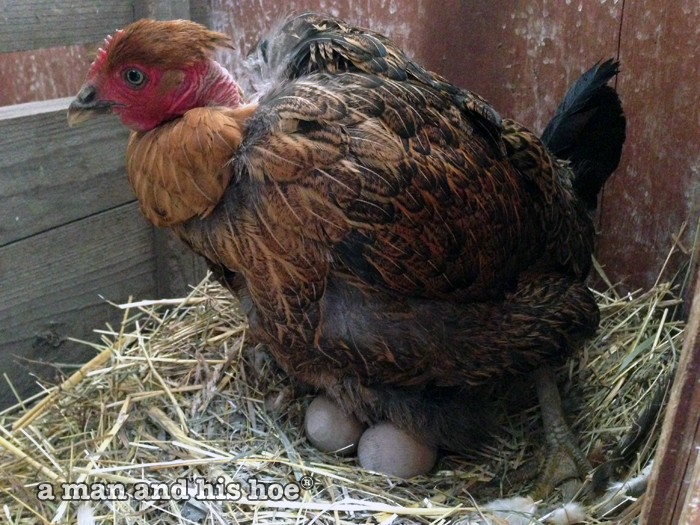
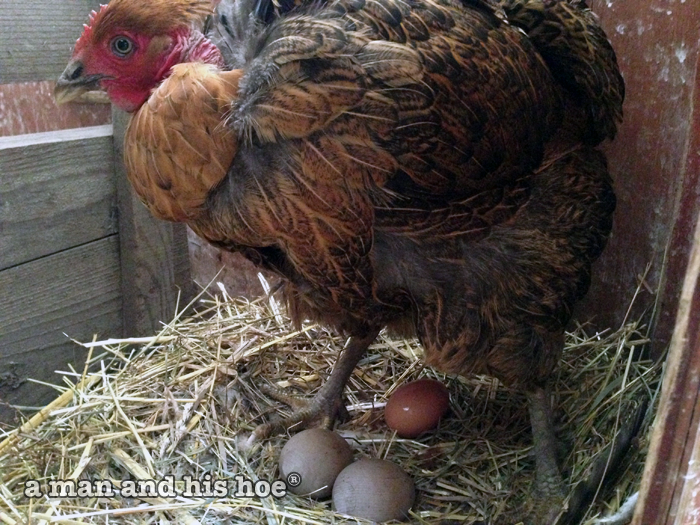
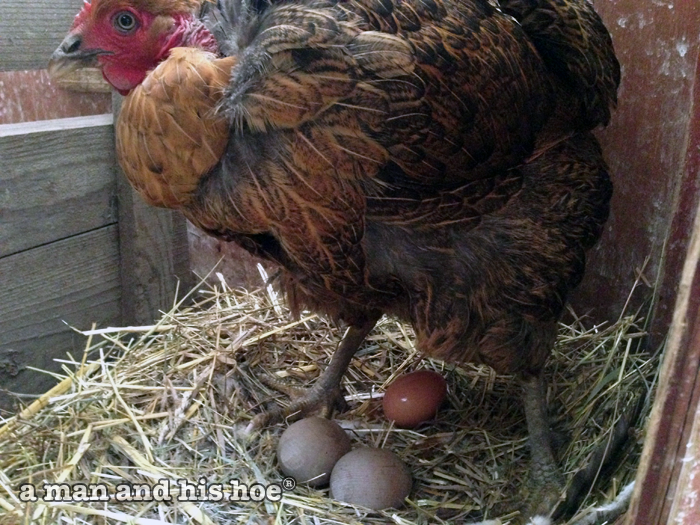
Eggs come out wet and shiny. This is called the bloom and it quickly dries, forming the cuticle, a protective barrier which keeps bacteria from entering the egg.
From Suburban Chickens:Eggs are laid with what is called a “bloom” which naturally protects it. This is the coating on the egg shell that seals its pores. Also known as the cuticle, it helps to prevent bacteria from getting inside the shell and reduces moisture loss from the egg keeping it fresher longer.
Hens usually do not start incubating their eggs until they have a clutch of 10 to 15 eggs. She wants to start incubating all the eggs at the same time so that the eggs all hatch on the same day. Therefore, eggs need to stay viable for the ten days to two weeks it takes for her to build up a clutch. Which is why, if you take a freshly egg, and put it on the counter, it will still be fresh two weeks later.
Since washing eggs damages the cuticle, making eggs more susceptible to contamination, in Europe, egg producers are not allowed to wash eggs. Even the US National Center for Biotechnology Information acknowledges this:
Egg washing is currently not permitted within the European Union, with few exceptions. This is mainly because there are concerns that cuticle damage could occur during or after the washing process, as a result of a suboptimal operation. (Effect of egg washing on the cuticle quality of brown and white table eggs.)
But you won’t find unwashed eggs in your supermarket. Chances of finding an egg with its cuticle intact in a supermarket are nil. The USDA requires all USDA graded eggs and most large volume processors to follow the washing step with a sanitizing rinse at the processing plant. In Washington state, flocks of under 3,000 hens are USDA grade exempt and fall under state law. Washington state allows the following egg cleaning methods:
- dry cleaning by lightly “sanding” the stains or minimal dirty areas with sand paper;
- using potable water in a hand spray bottle and immediately wiping dry with a single service paper towel: and/or
- briefly rinsing with running water spray and immediately wiping dry with a single service paper towel.
If you would like to get eggs with their cuticles intact, you’ll need to find a small farm which can supply you with such eggs. And if you do find small farm which can sell you eggs, be sure to get a farm that will tell you when your eggs were laid.
-
Good Food
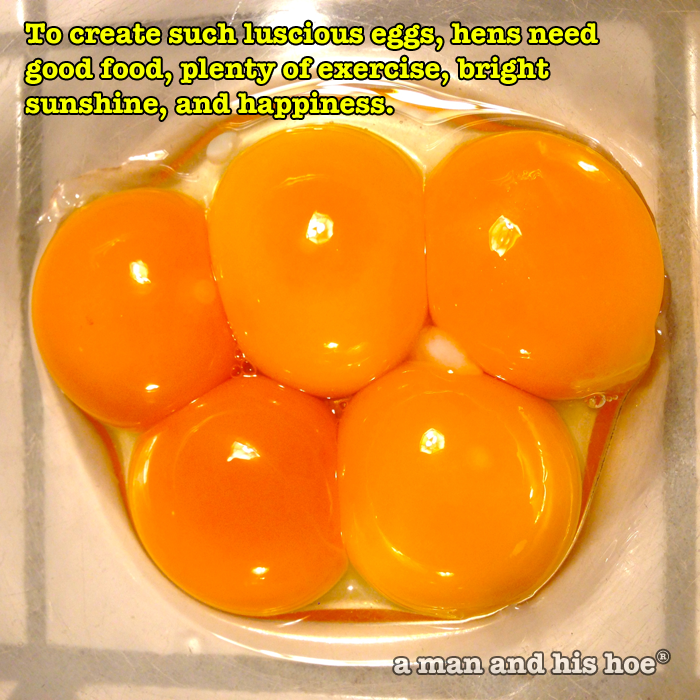
Luscious Eggs Good food makes all the difference in the world. And when it comes to eggs, it’s impossible to produce good eggs by the millions. To produce an egg as round and bright as the sun, a hen needs good food, plenty of exercise, lots of time outdoors in the sun, fresh earthworms, bugs, field mice, grass, seeds, berries, in other words, a rich and varied diet. She needs to be able to gossip with other hens, cavort with roosters, run through the woods and pasture and have a great time.
It’s not possible to do this on an industrial scale. Once you start crowding hens together, the quality of their eggs drops precipitously. But the industrial food producers don’t care about the quality of the eggs they sell. They won’t tell you the date they gathered the eggs they are selling. They won’t let you see the insides of their farms. Imagine that, a farmer who won’t let you see how they produce the food they expect you to eat. In fact, many of these industrial farmers want to make it a crime to show the public how they operate! They want to label as terrorists those who show people how their food is produced! How radical an idea is that? See Ag-gag laws. They only care about their profit margins. So hardly anyone ever gets to savor the texture and flavor of these full bodied eggs. It’s your food. You are the one putting it in your mouth. You have every right to know precisely how your food was made.
When you cook with these luscious eggs, the difference is startling. They fluff up easily. They make billowy soufflés which never fail. Fried eggs which taste rich and creamy without any salt.
But we live in a system which is consumed with making things as cheaply as possible, not with making things as good as possible. As a result, most people have no idea how spectacular a thing as simple as a chicken egg can be. And in an economy when everything is treated as a commodity, the individual differences between eggs is not allowed to be recognized. As far as the industrial food producer is concerned, one egg is the same as every other egg, and the eggs which cost the least are the best. But you and I know that this is as far from the truth as possible.
You won’t find eggs like this in the supermarket. You need to go find a local farmer who is as fanatical about the care and happiness of his chickens as you are. That’s where you’ll find perfect eggs.
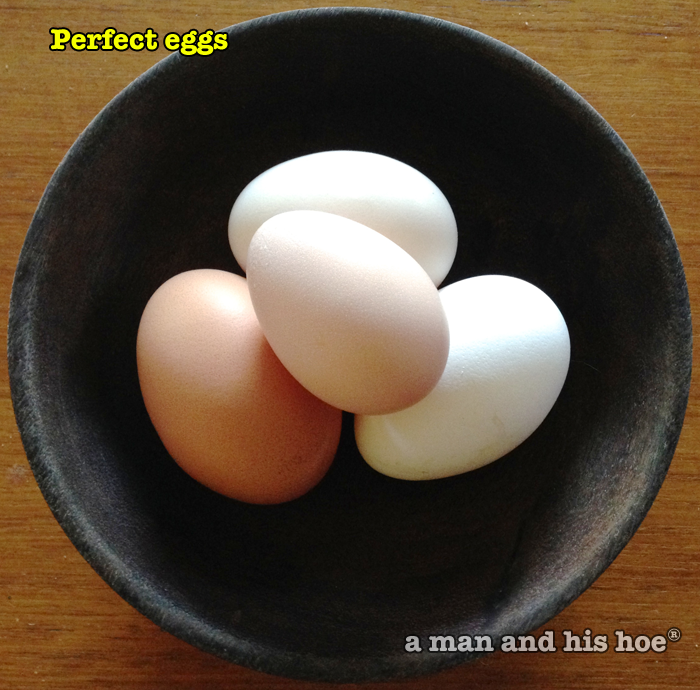
Perfect Eggs -
Svenda’s Egg
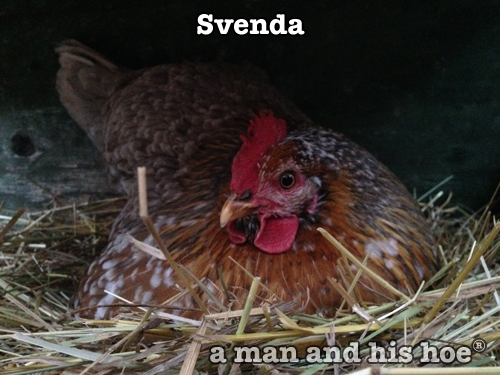
Svenda a Swedish Flower Chicken 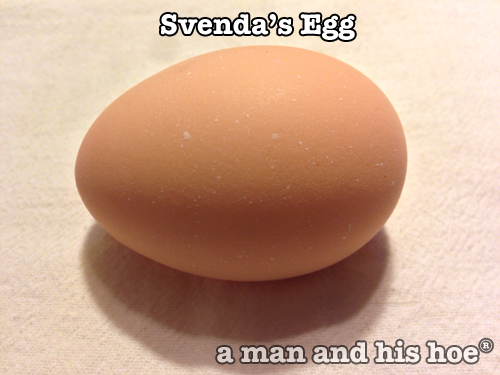
Svenda’s Egg Each chicken is unique. Each egg is unique. The variety of colors and patterns of chickens is endless. With each new chicken you can see evolution at work, trying new colors, patterns and personalities. The differences can be very subtle, but look closely and you’ll see them. And each chicken lays a slightly different egg every time. Over the life of a chicken it amounts to an incredible variety of eggs just from one bird. Life is always trying to better itself, trying this color, that shape, testing to see what will endure.
Buying eggs in a supermarket is downright depressing. The industrialists who supply the market with billions of eggs do their best to stamp out this riot of egg variety. By devoting all their energy on keeping costs down, they are depriving consumers of the joy beautiful eggs can bring. One amazing aspect of my chickens’ eggs is the sound they make when you tap them together. Close your eyes and gently tap these eggs together and you hear the distinctive clinking of bone china. You’ll never hear that from commercial eggs.